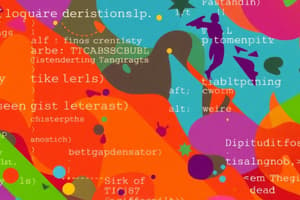Podcast
Questions and Answers
What is the primary purpose of shellcode?
What is the primary purpose of shellcode?
- To provide a safer alternative to vulnerable functions
- To spawn a shell and gain system access (correct)
- To execute a denial-of-service attack
- To debug a program using GDB
What is the difference between a vulnerability and an exploit?
What is the difference between a vulnerability and an exploit?
- A vulnerability is a potential security risk, while an exploit is a piece of code that takes advantage of it (correct)
- A vulnerability is a type of zero-day attack, while an exploit is a type of integer overflow
- A vulnerability is a type of shellcode, while an exploit is a type of format string
- A vulnerability is a type of buffer overflow, while an exploit is a type of fuzzing
What is the primary benefit of using GDB to debug a program?
What is the primary benefit of using GDB to debug a program?
- To execute a program with an executable file
- To list and disassemble the code (correct)
- To identify vulnerabilities in the code
- To improve the performance of the program
What is the effect of an integer overflow?
What is the effect of an integer overflow?
What is the primary purpose of a stack canary?
What is the primary purpose of a stack canary?
What is the relationship between the stack and the heap?
What is the relationship between the stack and the heap?
What is the purpose of ASLR?
What is the purpose of ASLR?
What is the primary benefit of using format strings?
What is the primary benefit of using format strings?
What is the primary purpose of fuzzing?
What is the primary purpose of fuzzing?
What is the difference between a buffer and an overflow?
What is the difference between a buffer and an overflow?
Study Notes
Week 1: C Language and GDB Tool
- C Language function syntax,
mainfunction syntax, and arguments - Data types:
integer,float,char,arrays, and declarations - Pointers and notation
- Input and output
- Conditionals and looping
- GDB Tool: executing with an executable file, listing and disassembling (
disas), breakpoints, and register inspection - Vulnerability and exploit definitions: difference between a vulnerability and exploit (and zero day)
Week 2: Integer Overflow
- Integer types: 8-bit equal to
char, signed or unsigned - Limits available as MACRO constants
- Byte sizes of types
- Effect of integer overflow: wrapping around positive or negative
- Implications in reality: usually triggered in loop iteration
- C Language: variable scope and variable types
Week 3: Stacks and Buffers
- Principle of a stack: stack frame organization, function entry and exit sequence
- How stacks work during execution and debugging in GDB
- Buffer and overflow principles: beneficial to a threat actor
- How buffers can be viewed in GDB: examples from lab
Week 4: Vulnerable Functions and Shellcode
- Vulnerable functions:
gets,strcpy,strcat,sprintf - Safer alternatives to these functions
- Shellcode: aim, usage, and how it works
Week 5: Format Strings
- Strings vs format strings: format string specifiers
- Functions:
printfandsprintf - What makes format strings vulnerable: properties
- Exploit setup: where does it read from initially?
Week 7: Heap Properties
- Heap properties and layout: vs the stack
- Functions using heap space: relation to the stack with variables
- Structure: chunks
Week 8: Fuzzing Principles
- Fuzzing principles: why and types
- Phases and methods of fuzzing
- Tools used in fuzzing
Week 9: More Fuzzing
- More fuzzing principles: issues with fuzzing approaches
- Code coverage: AFL tool
Week 10: Non-Executable Stack and Security
- Non-executable stack and implications
- Overrides: W^X, stack canaries, and ASLR
Studying That Suits You
Use AI to generate personalized quizzes and flashcards to suit your learning preferences.
Description
This quiz covers the basics of C programming, including function syntax, data types, pointers, and control structures, as well as an introduction to debugging with GDB and basic security concepts.




